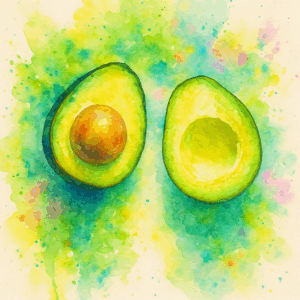Learn French with a podcast snippet! This clip is is from Un Bon Moment podcast. We do not own the content. The above audio sample and transcription is from Un bon moment podcast. We do not own the content. Enunciate What’s opening up for you with this clip? Comment below with what was surprising, easy,…
Start quiz, type what you hear, then join the conversation.
Did you find this one challenging or easy? Did you hear something diffferent? What surprised you? What levels did you complete? Comment below and share what’s opening up for you with this quiz.
Learn French with a podcast snippet! This clip is is from Un Bon Moment podcast. We do not own the content.
The above audio sample and transcription is from Un bon moment podcast. We do not own the content.
Enunciate
What’s opening up for you with this clip? Comment below with what was surprising, easy, challenging and/or interesting.
The snippet in English
Find a translation of this snippet here, how much of this did you hear?
Mesdames et messieurs, bonjour, bienvenue dans « Un bon moment », c’est ma voix de présentateur. Je fais et je frappe les consonne et j’ouvre les voyelles. Je suis toujours accompagné de mon pote Navon, comment ça va ?
Mais écoute, super. Mais pourquoi ? Parce qu’ils vont arrêter de nous faire chier en demandant, mais quand est-ce que vous faites un épisode avec Alexandre Astier ? Parce qu’il est… Là !
Alexandre Astier ! Il y a une petite aigreur, je pense plateau, il y a une petite aigreur, je savais, on me l’avait dit. Je n’avais pas eu de gris. Il y a un petit côté, c’est bon, il m’a arrêté de la… On est sur ce point. Envers eux !
Comment ça va, Alex ? Bien, vous-même. Je ne suis pas… Suis-tu toi ? Non, je dis vous-même, vous-deux. C’est l’habitude qu’on m’a su bien. C’est très excité à l’idée de te recevoir. J’aime beaucoup l’image de cette émission. Merci. Je te l’ai dit non. Merci, il faut féliciter Nicolas Begay et Jocelyn Biot qui sont en image.
Écoutez, on est jolis, on est jolis chez vous. On est beau. On est beau, gosse. Mais j’aime bien quand on a des peaux plutôt douces. Absolument. Parce que c’est toujours un peu le problème des interviews, toujours un peu genre…
Filmes!
Ladies and gentlemen, hello, welcome to “Un Bon Momen”, this is my presenter’s voice. I do and hit the consonants and open the vowels. I’m always accompanied by my buddy Navon, how’s it going?
But listen, great. But why? Because they’re going to stop pissing us off by asking, but when are you going to do an episode with Alexandre Astier? Because he’s… HERE!
Alexandre Astier! There’s a little sourness, I think tray, there’s a little sourness, I knew, I’d been told. I hadn’t had any grey. There’s a little side, it’s good, he stopped me from… We’re on that point. To them!
How are you, Alex? Fine, yourself. I’m not… Are you you? No, I mean you, you-two. I’m used to it. I’m very excited to have you here. I really like the look of this show. Thank you for that. I told you no. Thank you. Congratulations to Nicolas Begay and Jocelyn Biot, who are in charge of the images.
Listen, we’re beautiful, we’re beautiful here. We’re handsome. We’re handsome, kid. But I like it when our skin is soft. Absolutely. Because that’s always kind of the problem with interviews, always kind of like…
Film!
The above translation from Deepl
What does “frappe les consonne et j’ouvre les voyelles” mean?
– frappe les consonnes = I hit the consonants
→ Enunciate them clearly, sharply, with impact.
– j’ouvre les voyelles = I open the vowels
→ Prolong or articulate vowels with fullness and resonance.
What does “mon pote” mean?
Mon pote means my buddy or my mate—a casual, friendly way to refer to a male friend.
In France, pote is very common among friends, especially among teens and young adults. In Quebec, it’s understood but chum or ami is more typical. In Francophone Africa, pote is used in urban speech, especially by younger people or in media-influenced slang.
What does “nous faire chier” mean?
Nous faire chier is a very informal and vulgar French expression meaning to annoy us, to piss us off, or to make our lives difficult.
Ils viennent encore nous faire chier avec leurs règles.
(They’re bothering us again with their rules.)
In France, this is common in frustrated or heated speech, often among younger or informal speakers. In Quebec, it’s also used but might sound harsher, depending on context. In Francophone Africa, it’s generally recognized but might be avoided in favor of milder expressions, especially in formal settings.
What does “une petite aigreur” mean?
Une petite aigreur means a slight bitterness—either in taste or emotion.
Il y a une petite aigreur entre eux.
(There’s a bit of bitterness between them.)
– Can describe food (sourness) or feelings (resentment)
– Often used gently to hint at tension without being harsh
What does “gosse” mean?
Gosse means kid or child in informal French.
– Can refer to a boy or girl
– Very common in France
– In Quebec, gosse means testicle, so it’s avoided there in this sense
– More neutral alternatives: enfant, petit, fille/garçon
Improving your French Listening Comprehension with Podcasts
On this site, fast spoken French is finally accessible to all levels. The tool break podcasts into short clips each set to transcription fill-in-the-blank practice. My favorite practice in class is always dictées. While they can seem overwhelming at first, the confidence boost and skills payoff for doing the work pays off. They’re perfect for anyone at any level, from advanced students to those just starting.
We use podcasts and our practice exercises to make it possible for anyone, anywhere to immerse in French with fun and ease. Join us and enjoy French, one short clip at a time. Let’s learn together!
Make the most of the site:
- Daily Podcast Listening: Start your day with a French podcast from our collection. Choose episodes that align with your interests to keep it engaging.
- Active Listening Practice: As you listen, try to pick out key phrases and vocabulary. Use our daily quizzes to test your understanding and reinforce learning.
- Repeat and Shadow: Listen to the same podcast segment multiple times. Try to mimic the pronunciation and intonation to improve your spoken French.
- Note-taking: Jot down new words or phrases you encounter. Review these notes regularly to enhance vocabulary retention.
- Reflect and Respond: After each episode, summarize the main points in French, either in writing or aloud. This helps in consolidating your learning and improving your expressive skills.
- Read More:
- True Beginner or A1 Learners: discover tips learning with podcasts at an introductory level.
- Discover all the podcast clips on FrenchIRL organized by level.
- Top Tips: Here’s how I make the most of my own site.
I created the French In Real Life project because I wanted to understand more than just my teacher and youtubers who cater to learners. I wanted to understand the French I hear in France. I hope you can benefit as much as I have. Become a supporting member for access to all clips.
What’s opening up for you?
Comment below with what’s opening up for you with this clip. What do you love about this? What was challenging? What was easy? Share your learning progress below!
Learn French with a podcast snippet! This clip is is from Un Bon Moment podcast. We do not own the content. The above audio sample and transcription is from Un bon moment podcast. We do not own the content. Enunciate What’s opening up for you with this clip? Comment below with what was surprising, easy,…
Start quiz, type what you hear, then join the conversation.
Did you find this one challenging or easy? Did you hear something diffferent? What surprised you? What levels did you complete? Comment below and share what’s opening up for you with this quiz.








